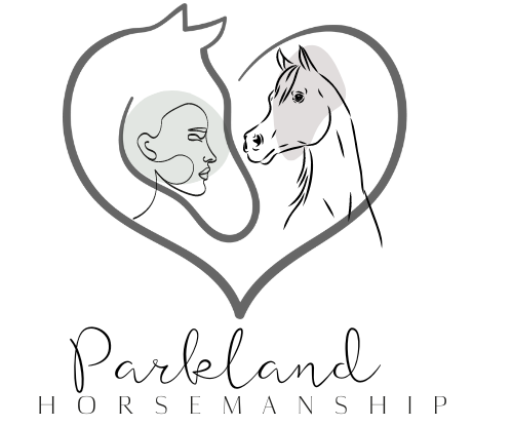Horses live in the present moment and encourage clients to do the same. Their keen observation skills enable them to provide feedback about a participant’s behaviors, physical movements and emotions – providing valuable lessons about life as an observer can offer invaluable assistance for participants.
People living with posttraumatic stress disorder (PTSD) frequently experience hypervigilance, the constant fear that danger could strike at any moment. Engaging with horses helps people learn how to co-regulate and calm themselves; an invaluable skill that can both address symptoms associated with PTSD as well as form human relationships.
1. Creating a Safe Environment
As prey animals, horses are keenly aware of their environment and can detect fear or anxiety in people. Horses offer a nonjudgmental platform where people can build trust and self-esteem through interaction.
EAS horses’ ability to mirror participant behavior, movements and emotions provides immediate feedback that enables participants to “feel seen”, often described as bonding within EAS programs. Furthermore, similar to psychiatric service dogs they may also serve a biofeedback function by alerting participants of emotional arousal and stress levels.
Participants can use these techniques to stay grounded in the present moment and manage their emotions without feeling overwhelmed, making it more likely that they’ll practice healthy coping techniques in daily life.
2. Building Self-Esteem
Many individuals who experience trauma, anxiety, depression and other mental health disorders find equine-assisted therapy beneficial in working through their emotions by creating trust with horses. Equine animals provide feedback without being biased by appearance or past experiences – which allows a person to work through them more effectively.
Horses encourage participants to focus on staying present, which promotes mindfulness. Studies have linked mindfulness practice with improved social interactions and lower rates of anxiety disorders like PTSD.
Since horses can be intimidating creatures, their soothing presence helps participants develop self-esteem by helping them gain confidence around them in a safe environment. Furthermore, learning to interact successfully and build trust through partnerships builds resilience in other relationships or situations where fear or worry may exist.
3. Developing Empathy
Equine therapy stands apart from other forms of psychotherapy because horses provide immediate feedback that enables clients to feel understood and connected with each other.
Trauma survivors who interact with horses may gain an increased sense of connection to both themselves and other people that is sometimes lacking due to trauma’s impact on their ability to form meaningful bonds with others. Trauma also disrupts attachment patterns, creating dissonance within relationships and often leading to distrust between parties involved.
As a result, trauma survivors may shy away from human relationships and find it hard to develop trusting bonds [127]. Therapy animals can provide more trustworthy interactions than people; thus acting as an antecedent for developing trust with human therapists [113]. Horse-human interactions may play an integral role in building attachment and trust through activating implicit motives during experiential interactions between horse and humans [114].
4. Developing Self-Awareness
Equine Therapy helps participants become more self-aware by increasing awareness of emotions, thoughts, and behaviors without judgment. This nonjudgmental approach to emotional regulation is at the core of Dialectical Behavior Therapy (DBT) and mindfulness; which emphasizes paying close attention and accepting powerful emotions such as those caused by troubling situations or events.
Horses’ natural prey animal and herd instincts allow them to be highly responsive to their environment, giving immediate feedback about participant’s behaviors, movements and emotional state. Sometimes horses even pick up on nervousness or anxiety before it becomes noticeable to humans themselves.
Nonjudgmental and consistent feedback helps build trust between individuals with past traumatic experiences and horses, particularly children who do not yet have the language to express themselves verbally. Thus horses provide an effective avenue for them to process and recover from traumas they have endured.
5. Developing Trust
Horses’ sensitive body language allows participants to build trust in them. Participants learn how to build connections and open up in a nonjudgmental relationship with an animal who won’t judge about past experiences or emotions.
As prey animals, horses tend to rely heavily on their “flight” instinct when facing threats, providing trauma survivors with a timely way of reacting and making a quick judgment call as to whether something they perceive to be potentially harmful actually is.
Establishing a connection with an animal that doesn’t judge them may help your child build trust in other human relationships as well, leading to healthier ones and giving them insight into themselves and their emotions.

